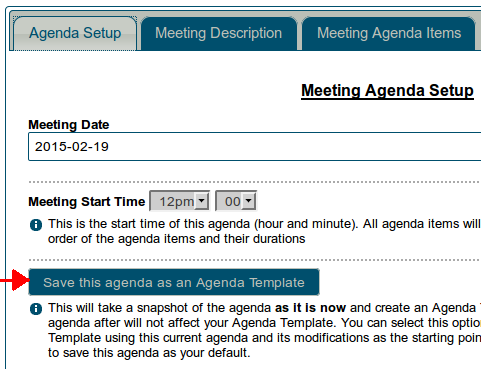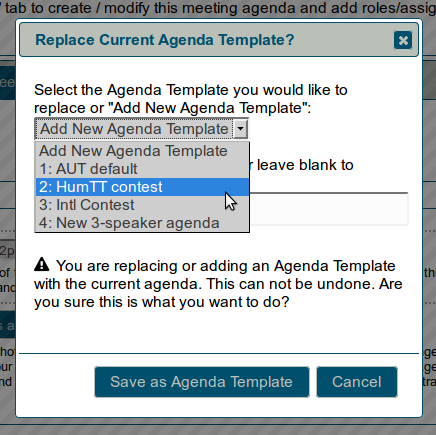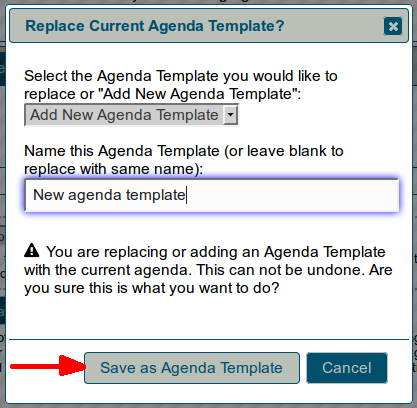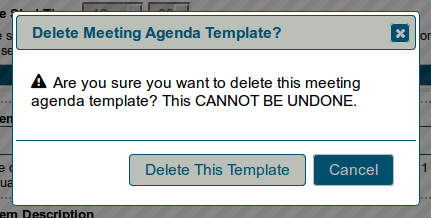

- Details
- Category: Documentation
- By FreeToastHost
This is intended to assist you in updating your website appropriately at the end of officers' terms when you are switching to new officers.
Some things to review in your FreeToastHost website when switching to new officers:
- If you are using a custom domain, it is a good time to review your expiration date for your custom domain. You can check this for your custom domain using http://www.whois.com/ . If your custom domain will be expiring in the next officer term, it is a good idea to give your incoming treasurer a heads up in advance about any renewal cost that they should expect during their term.
- Try to get member photos and completed bios for all of your incoming club officers. Ask them to make their profiles public so that they show up on the Meet Our Members page.
- Review your home page and custom web pages to identify anywhere that your current officers are identified, as you will likely want to update those pages to reflect the new officers. A simple approach to doing this is just to make a copy of the current pages as custom web pages and set them as unlisted so that you can work on the updates without having to show them right away.
- Review your Access Settings as the incoming officers may want to do things differently with regards to admin console access for your website.
- You will need to update the officer settings in Membership Management. If you want to save your current officers to a "formerofficers" group or your new officers to a "newofficers" group, you can do that by making a custom group.
- Review the notification settings in Membership management to ensure that the correct club officers receive the notification emails related to new member opt-ins. Make sure that these officers understand how the opt-in process works for adding people in Membership Management.
- Make sure that the new officers understand the implications of the club email reply settings. For example, if your officer email reply settings are set to Reply All, make sure the new officers understand that if they reply to those emails, the replies go to all officers and the sender.
- Make sure that the new officers understand that, by default, they are assigned publicly accessible officer email addresses ("aliases") that forward to their real email addresses. If the new officers ever get spammed at these email addresses, the email addresses can be disabled or the sender of the spam can be blacklisted. Lastly, make sure that officers understand that they can publish their officer email address instead of their personal email address.
- Determine who will be the club contacts for the new officer term. If your club has chosen to just make the contacts associated with specific officer roles (easier) you may not need to do anything with this, but if your contacts are specific members, you will likely need to update them in Email and Contact Forms (Contact Us Form tab).
- Determine who will be your mentoring contact for the new officer term (your VPE?), and set that on the Mentoring Form tab in Email and Contact Forms.
- If you are using the FreeToastHost agendas, you will probably want to verify who will want to get Role Change Notifications during the next officer term. For example, your club president may not want to receive those notifications. The Role Change Notifications are set up in the Meeting Agenda Settings module.
- Be prepared to go over the functionality of different admin console functions for any incoming officers that will be using the admin console.
Historically, officer changeover has been associated with some confusion about how to modify website settings to reflect the new officers. Hopefully, the above checklist will help make this changeover go a bit smoother. Please let us know if we have forgotten anything in the above list.

- Details
- Category: Documentation
- By Jane Atkinson
Agenda Templates
You can define one or more default agendas for the club. The template can be built from scratch, or modified from another agenda which has been saved as a template.
If your club is happy with one of the defaults provided, you don't need to define any additional agenda templates.
Create a new template
Click on the + button.
Give your new template a name and a start time.
Click on Save as New Agenda Template.
To continue building your template, see the instructions for editing an agenda.
Save an existing agenda as a template
Go to the agenda you want to use as a template.
Click on the pencil button to open it for editing.

Click on Agenda Setup tab
Click on the Save as Template button (arrowed).
You can choose to replace an existing template by choosing its name from the pull-down list.

OR you can add a completely new template by giving it a name.

This will save a copy of the agenda as it is now, but without names in any of the roles.
Note: Any further changes you make to the original agenda will have no effect on the template.
Pre-populated roles
In general, leave the roles empty.
However, if you have any agenda roles which are done by the same person every time, you can add the member's name to the template. For example, "President opens meeting" can have the President's name added.
When you change the name in the template after a new President has been elected, existing agendas won't be affected.
Delete a template
Select the agenda you wish to delete in the templates list.
Click on the trash/rubbish icon (arrowed in screenshot below).

You'll be asked to confirm that you really want to delete this template. Click Delete This Template (unless of course you realise that you've made a mistake).


- Details
- Category: Documentation
- By Jane Atkinson
Hints for using the mailing lists
Accessing and Using Club E-mail Addresses
Your new FTH website has a whole list of new e-mail addresses associated with it that each have their own uses and "rules". You can find this list and links to the e-mail by clicking the "Edit Your Member Profile / Private Member Directory" link – the "Club E-mail Addresses" pane will open by default (this would be "District E-mail Addresses" for districts).
General Format for E-mail Addresses
If you are using your own club domain name (not the Toastmastersclubs.org or Toastmastersdistricts.org domains), then your e-mail address format will be
[listname]@your-custom-domain.com
If you are using the toastmastersclubs/districts domain, your club e-mail address format will be
[listname]-[clubnumber]@toastmasters[clubs/districts].org
As a regular member, you do not have your own e-mail address – the club has list addresses and addresses associated with specific officer roles, but not an address for each member of the club.
Sending E-mail to Your Club Addresses
Not everyone can send messages to every club or district list – each list has its own requirements which are explained under each list address in the "Club E-mail Addresses" pane. For example, only members of the club can send messages to the club list.
How does the system know if you are authorized? It checks the "From" address you use in your e-mail client against BOTH your main e-mail address and your backup e-mail address as shown in your member profile (on your FTH club website – NOT the Toastmasters International site). So be sure at least one of these two e-mail addresses are actually the one you are using as your From address when you send e-mail.
If your message is not delivered for any reason, you will get a message back with an error message, telling you why.
Do not use BCC. It is not supported by FTH, and will result emails being rejected back to you.
These are forwarding email addresses and distribution lists – if you are part of any list or officer alias, there is no extra "place for you to check your e-mail". All of the messages are forwarded to your main e-mail address in the member database.
More Articles …
Page 10 of 30


